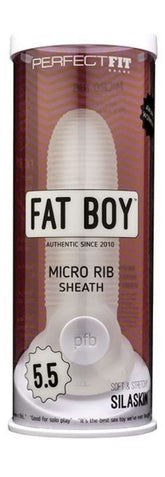-
Slip 'n' Giggle - EVERYONES LUBE for Hilarious MomentsProduct Description of Gender X EVERYONE's LUBE Introducing Gender X EVERYONE's LUBE, a playful and versatile personal lubricant that's designed to enhance intimate experiences for all. Infused with a touch of humor, this lube promises to add a delightful slipperiness to your bedroom adventures,...
- from $14.99
$29.99- from $14.99
- Unit price
- per
-
Four Seasons Nude 200mlFour Seasons Nude 200ml - Natural Intimate Comfort Four Seasons Nude 200ml perfectly balances natural sensation with lasting comfort. This crystal-clear, water-based formula brings a silky-smooth touch to intimate moments, delivering pure, uninterrupted pleasure without any sticky residue. Pure Formula for Natural Intimacy Crafted...
- $19.99
$24.99- $19.99
- Unit price
- per
-
Four Seasons Nature - Captivating 200ml FragranceProduct Description of Four Seasons Nature 200ml Prepare to embark on a sensual journey with the captivating Four Seasons Nature 200ml. This intimate lubricant promises to ignite your senses and elevate your intimate experiences to new heights. Crafted with the finest natural ingredients, it...
- $19.99
$24.99- $19.99
- Unit price
- per
Organic Lubes FAQ
No, certification standards allow small percentages of synthetic ingredients. Australian Certified Organic (ACO) requires 95 per cent certified organic ingredients, meaning up to 5 per cent can be non-organic or minimally processed synthetic compounds. USDA Organic and COSMOS Organic follow similar thresholds. Check certification seals and ingredient lists for specific formulation details.
Organic formulas avoid synthetic thickening polymers like carbomer or hydroxyethylcellulose that create long-lasting viscosity. Natural thickeners like xanthan gum or carrageenan provide lighter texture with less moisture retention. Aloe-based organic lubes especially feel thin because aloe vera gel has high water content with minimal natural thickening compounds.
Chemically, they are identical once refined—both are glycerol molecules. Organic glycerin is sourced from organic crops (palm, coconut, soy) without synthetic pesticides, while synthetic glycerin may use petrochemical processing or non-organic plant sources. Performance, pH impact, and potential for tackiness remain the same regardless of organic certification.
Natural emulsifiers are weaker than synthetic versions, so oil and water components separate more readily. Natural preservatives also allow some microbial activity that changes texture over time. Shake the bottle before each use to re-blend separated ingredients. If texture change is accompanied by off-smell or cloudiness, discard the product.
Coconut oil solidifies below 24°C. Warm the bottle in your hands for 2–3 minutes or run it under warm water briefly to liquefy. Some organic coconut lubes add organic fractionated coconut oil, which remains liquid at lower temperatures. Check labels if you want to avoid solidification issues in cooler environments.
Look for third-party certification seals on the label—ACO (Australian Certified Organic), USDA Organic, COSMOS, or similar. These require audited verification of ingredient sourcing and processing. Products labeled "organic" or "made with organic ingredients" without certification seals may contain minimal organic content. Check the manufacturer's website for certification documentation if uncertain.
Organic ingredient sourcing costs 30–70 per cent more than conventional alternatives due to smaller production scales, certification requirements, and farming restrictions. Natural preservative systems are also more expensive than synthetic options. The price premium reflects supply chain costs rather than superior lubrication performance.
Possibly, but not guaranteed. If your irritation stems from parabens, petrochemicals, or synthetic fragrances, organic formulas may help. However, natural ingredients can also cause reactions—botanical extracts, essential oils, and plant-derived preservatives trigger allergies in some users. Identify your specific sensitivity through patch testing rather than assuming organic automatically means gentler.
Formulas using potassium sorbate or sodium benzoate last 9–12 months after opening. Grapefruit seed extract-preserved options typically last 6–9 months. Formulas with minimal preservatives or those relying solely on citric acid may only last 4–6 months. Check labels for specific guidance, and discard if you notice separation, smell changes, or texture degradation.
Organic massage oils work for external genital contact and can be used for penetration if they are body-safe and do not contain essential oils that irritate mucous membranes. However, most massage oils cannot be used with latex condoms, as the oil base degrades latex. Dedicated organic lubes are formulated for genital tissue compatibility, while massage oils prioritize skin absorption and scent.
- $19.99
- $19.99
- Unit price
- per
- $19.99
- $19.99
- Unit price
- per
- $19.99
- $19.99
- Unit price
- per
- $19.99
- $19.99
- Unit price
- per
- $19.99
- $19.99
- Unit price
- per
- $19.99
- $19.99
- Unit price
- per
- $19.99
- $19.99
- Unit price
- per
- $19.99
- $19.99
- Unit price
- per
- $19.99
- $19.99
- Unit price
- per
- $19.99
- $19.99
- Unit price
- per
- Choosing a selection results in a full page refresh.




















